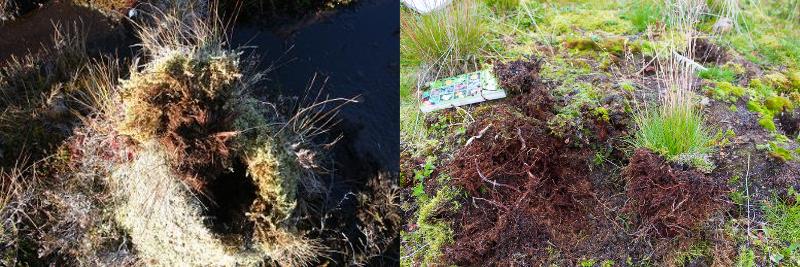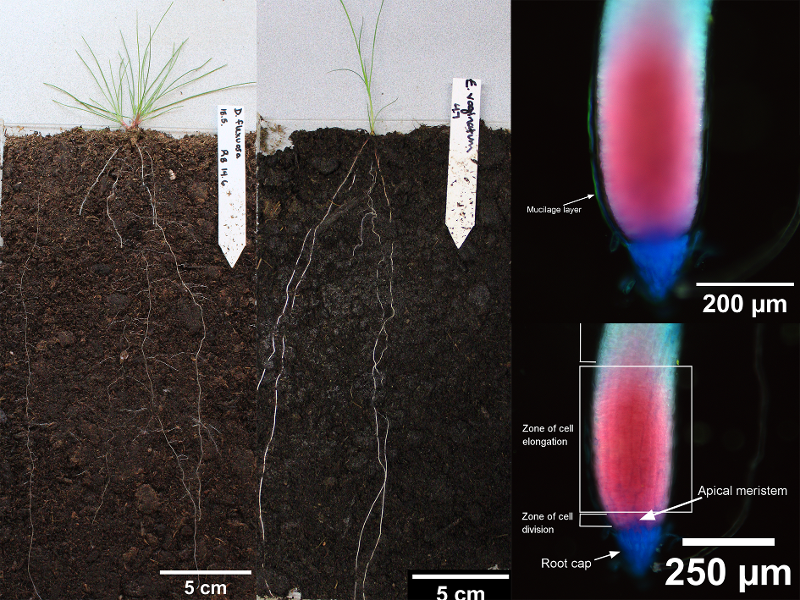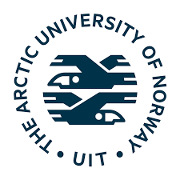Plant Mucilages
Plants exude a complex matrix of high molecular weight compounds (mucilage) from different organs. Root mucilages secreted into the rhizosphere enhance water and nutrient exchange, protect against pathogens and fungal infection, and modify soil physical and chemical properties. In contrast to other environments, little is known about the root mucilage composition and regulation from Arctic and sub-Arctic plants who survive in low temperatures, acidic soils, and under nutrient limitations. We are interested in characterizing and quantifying native sub-Arctic root mucilage under Arctic environmental conditions along with root phenotypes to identify species-specific characteristics and biogeochemical contributions of ecological relevance in these ecosystems.


Plant roots are the main drivers of carbon exchange between the atmosphere and soil. However, studying root systems is notoriously difficult due to their hidden nature underground. An array of techniques such as hybrid-hydroponic mucilage collection, microscopy, growth in rhizotrons, and hyperspectral imaging can be utilized to phenotype roots and analyze the unique function of the microscopic root mucilage.
Understanding the complex root-soil dynamics in challenging environments, such as the Arctic and sub-Arctic regions, will help us identify which species and specific ecosystem services are facilitating carbon sequestration and have potential roles in future bioremediation, biotechnology, and biodesign efforts.
Our research is part of work package 2 of UiT's strategic project ABSORB aiming to harness the unique biology of Arctic biomes to establish new biotechnologies for atmospheric C draw-down.


Our team:
PI Professor Dr Kirsten Krause
PI Associate Professor Dr. Katja Karppinen
PI collaborating Professor Wolfgang Busch
PhD student Corine Faehn
Funded projects: UiT strategic funds (Project "ABSORB") 2020-2023
Highlighted publications: Galloway et al. 2020, New Phytol. 225, 1461-1469, Schweitzer et al. 2021